Clinical governance in equine practice: practical examples of quality improvement
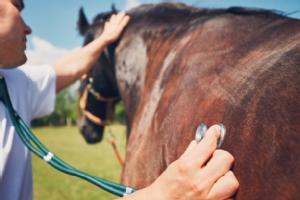
Date: Thursday 5th December 2019
Opening times: 9.45am-3.45pm
Venue: Ashbrook Equine Hospital, Middlewich Road, Allostock, Nr Knutsford, Cheshire WA16 9JQ
Details
This full-day event, hosted by RCVS Knowledge, will include real-life scenarios and case studies that will help you learn how to apply quality improvement (QI) methods and showcase the latest developments and free tools available to equine practices to make practical changes to improve outcomes for your patients.
Event Programme
Lunch will be provided.
9.45-9.55am Welcome and introduction
9.55-10.35am How we're doing clinical governance in our practice
This session will look at the key elements of clinical governance and give practical advice on how to apply them to your clinic. We will explore this is performed in a large equine hospital and use examples what can go wrong and how to implement change while maintaining a “no blame culture”.
Lewis Smith BVetMed, CertES(Orth), DESTS, DipECVS, FRCVS
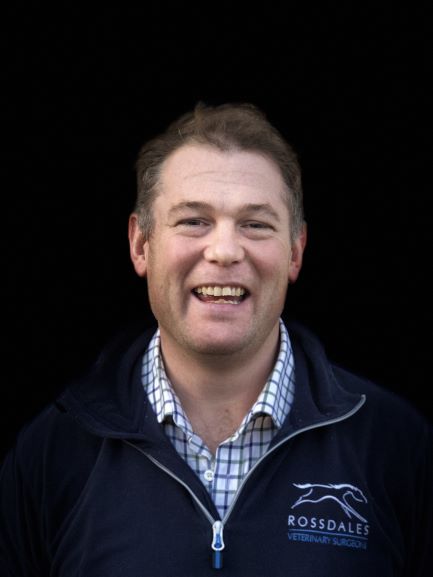 Lewis Smith is a surgeon and partner at Rossdales Equine Hospital. He is responsible for the hospital’s clinical governance policy and is a firm believer in setting and improving standards in veterinary care. He qualified from the Royal Veterinary College in 2006 and has worked in equine hospitals in America, Australia and the UK. He is a holder of European and RCVS diplomas in Equine Surgery and a fellow of the Royal College of Veterinary Surgeons. His published work includes investigations into complications following intra-articular medications performed in equine practice.
Lewis Smith is a surgeon and partner at Rossdales Equine Hospital. He is responsible for the hospital’s clinical governance policy and is a firm believer in setting and improving standards in veterinary care. He qualified from the Royal Veterinary College in 2006 and has worked in equine hospitals in America, Australia and the UK. He is a holder of European and RCVS diplomas in Equine Surgery and a fellow of the Royal College of Veterinary Surgeons. His published work includes investigations into complications following intra-articular medications performed in equine practice.
10.40-10.55am The barriers to QI
This session will discuss some of the barriers and solutions encountered when utilising QI methods. Using related examples from the field of human healthcare the talk will examine how some of the barriers noted in the human literature may be similar or differently encountered in the field of veterinary care and how to address them to effectively use QI.
Freya Rooke MRes, CVS PhD student at the University of Nottingham
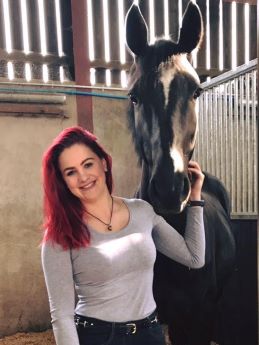 Freya completed her undergraduate and MRes degree’s at University West of England based at Hartpury College. Her area of research during this time was the use of smart-textile technology in the field of horse-rider analysis. This was followed by a one-year placement at the Royal (Dick) School of Veterinary Studies equine hospital, where she worked as a research assistant and soft tissue surgical technician. Freya is now based at the University of Nottingham veterinary school for her PhD project “investigating the use of Quality Improvement (QI) methods in equine veterinary medicine” — and her PhD is funded by C.V.S Equine and the University of Nottingham.
Freya completed her undergraduate and MRes degree’s at University West of England based at Hartpury College. Her area of research during this time was the use of smart-textile technology in the field of horse-rider analysis. This was followed by a one-year placement at the Royal (Dick) School of Veterinary Studies equine hospital, where she worked as a research assistant and soft tissue surgical technician. Freya is now based at the University of Nottingham veterinary school for her PhD project “investigating the use of Quality Improvement (QI) methods in equine veterinary medicine” — and her PhD is funded by C.V.S Equine and the University of Nottingham.
11.00-11.40am Checklists in veterinary practice
This session will cover the use of checklists in other industries and human healthcare, how they can be applied in a veterinary setting and how they can be used to reduce errors.
Pam Mosedale BVetMed MRCVS, Chair of QIAB
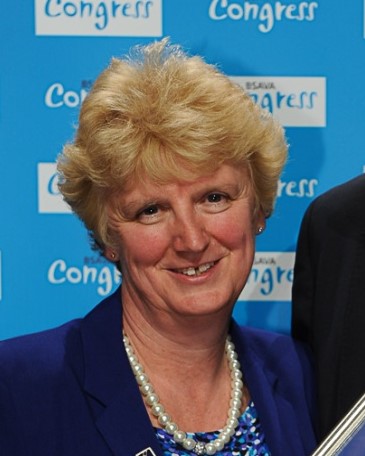 Pam qualified from the RVC in 1979 and worked in mixed practice for the first part of her career, then was a partner in a small animal hospital for 17 years.
Pam qualified from the RVC in 1979 and worked in mixed practice for the first part of her career, then was a partner in a small animal hospital for 17 years.
Pam joins the RCVS Knowledge QIAB having had extensive involvement with the college. She was a Practice Standards Inspector from the beginning of the BSAVA practice standards scheme and continued with the RCVS scheme, becoming Senior Inspector before moving on to become an independent veterinary investigator.
Pam has been appointed Acting Lead Assessor and Veterinary Advisor since April 2015. She has been involved in assessor training, with particular focus on the consistency of assessment and welcomed the increased emphasis on clinical governance, clinical effectiveness and audit in the new scheme.
She has been a member of BSAVA committees and, as a BSAVA representative on the Practice Standards Group for the last few years, she is always keen to encourage feedback from members. Pam is editor of the BSAVA Guide to the Use of Veterinary Medicines, an SQP assessor for AMTRA and still does some locum work in her spare time. Pam first got involved in clinical governance when on BVHA council when she started to look into whether clinical audit could be applied to veterinary practices. She wrote the first article published in the UK on clinical audit in veterinary practices in 1999. Pam has spoken at BSAVA Congress, BVNA congress, SPVS Congress, BEVA clinical audit workshops, CAW TP conference and on RCVS webinars about Clinical governance and clinical audit.
11.45-11.55am Tea & Coffee break
11.55-12.35pm Creating and using guidelines in practice- colics, castrations, antimicrobials and more
This session will look at some of the problems and benefits of introducing clinical guidelines into equine practice. Using some real-life examples, we will look at why guidelines may be beneficial, how to go about finding and devising our own guidelines, how to implement them and how to monitor their effect.
Tim Mair BVSc PhD DEIM DESTS DipECEIM AssocECVDI MRCVS RCVS Specialist in Equine Internal Medicine & Equine Surgery (Soft Tissue)
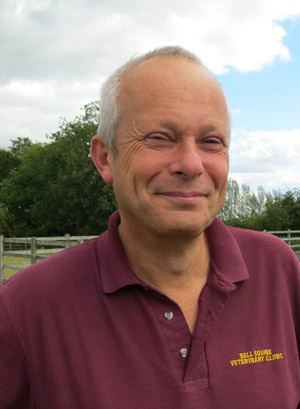 Tim Mair graduated from the University of Bristol in 1980. Following a spell in general practice, he returned to Bristol as a Horserace Betting Levy Board Research Training Scholar to undertake research into equine immunology and respiratory diseases. He obtained a PhD in 1986 and then stayed at Bristol as a Welcome Trust Lecturer in equine medicine.
Tim Mair graduated from the University of Bristol in 1980. Following a spell in general practice, he returned to Bristol as a Horserace Betting Levy Board Research Training Scholar to undertake research into equine immunology and respiratory diseases. He obtained a PhD in 1986 and then stayed at Bristol as a Welcome Trust Lecturer in equine medicine.
He returned to equine practice in 1989, joining Bell Equine Veterinary Clinic in 1993 and becoming a partner in 1995. His main interests are equine internal medicine, soft tissue surgery and MRI. He has Diplomas from the RCVS in Equine Internal Medicine and Equine Soft Tissue Surgery and is a founding Diplomate of the European College of Equine Internal Medicine. He became an Associate of the European College of Veterinary Diagnostic Imaging in 2011. He became Equine Veterinary Director of CVS in 2018. He has been editor of Equine Veterinary Education since 1996. He has published over 150 articles in peer-reviewed journals, as well as other articles and book chapters. He has co-authored or co-edited a number of textbooks on equine medicine and surgery.
12.40-1.20pm Lunch
1.20-2.00pm An anaesthetic complication and what we did about it: turning error into improvements.
This session will demonstrate the use of the RCVS Knowledge significant event audit template on a real clinical incident in equine practice. The lessons learnt and the measures taken to improve will be discussed.
Alice Bird MA VetMB DipECVAA MRCVS EBVS ®European Specialist in Veterinary Anaesthesia and Analgesia
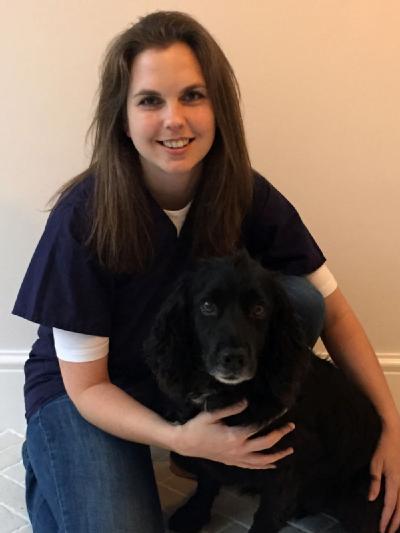 Alice graduated from Cambridge University in 2009, after which time she worked at Bell Equine Veterinary Clinic, first as an intern and later as an equine ambulatory assistant.
Alice graduated from Cambridge University in 2009, after which time she worked at Bell Equine Veterinary Clinic, first as an intern and later as an equine ambulatory assistant.
During her time in equine practice, Alice developing a keen interest in equine anaesthesia and critical care and moved back to Cambridge University in 2014 to start a multispecies residency in anaesthesia and analgesia. Alice went on to become a Diplomate of the European College of Anaesthesia and Analgesia in 2018 and now works as a Senior Clinical Anaesthetist at the Animal Health Trust.
During her residency, Alice became interested in quality improvement and patient safety. Use of checklists, all eventuality planning and clinical incident auditing play a vital part in anaesthetic safety.
Alice is particularly passionate about building open and non-judgemental work teams and how applying clinical auditing in the correct manner can not only improve patient safety but also improve team morale and motivation to provide excellence of care.
2.05-2.45pm Clinical audit
This session will demonstrate a practical approach to getting started on clinical audit in equine practice with real-life examples. We hope this session will stimulate delegates to start out or develop process audits in their practice which can make a real difference very quickly
Pam Mosedale BVetMed MRCVS, Chair of QIAB
 Pam qualified from the RVC in 1979 and worked in mixed practice for the first part of her career, then was a partner in a small animal hospital for 17 years.
Pam qualified from the RVC in 1979 and worked in mixed practice for the first part of her career, then was a partner in a small animal hospital for 17 years.
Pam joins the RCVS Knowledge QIAB having had extensive involvement with the college. She was a Practice Standards Inspector from the beginning of the BSAVA practice standards scheme and continued with the RCVS scheme, becoming Senior Inspector before moving on to become an independent veterinary investigator.
Pam has been appointed Acting Lead Assessor and Veterinary Advisor since April 2015. She has been involved in assessor training, with particular focus on the consistency of assessment and welcomed the increased emphasis on clinical governance, clinical effectiveness and audit in the new scheme.
She has been a member of BSAVA committees and, as a BSAVA representative on the Practice Standards Group for the last few years, she is always keen to encourage feedback from members. Pam is editor of the BSAVA Guide to the Use of Veterinary Medicines, an SQP assessor for AMTRA and still does some locum work in her spare time. Pam first got involved in clinical governance when on BVHA council when she started to look into whether clinical audit could be applied to veterinary practices. She wrote the first article published in the UK on clinical audit in veterinary practices in 1999. Pam has spoken at BSAVA Congress, BVNA congress, SPVS Congress, BEVA clinical audit workshops, CAW TP conference and on RCVS webinars about Clinical governance and clinical audit.
Charlotte Hartley RVN
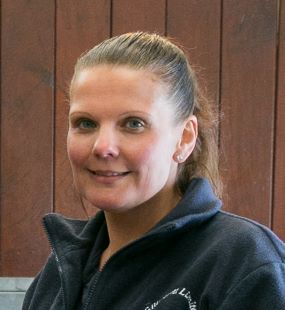 Charlotte began her career in a private small animal practice as a receptionist in 2007 and soon began her training as a veterinary nurse. In September 2013, she qualified as an RVN and progressed quickly to Head Nurse. Three years later, she moved to highly respected equine practice, Gillivervets, and became responsible for ensuring the practice worked in accordance with the RCVS Practice Standards Scheme and stock control. As Charlotte’s role evolved, she was promoted to Clinical Coordinator. After the practice joined VetPartners in March 2018, she has taken on a new role in addition to her position at Gillivervets.
Charlotte began her career in a private small animal practice as a receptionist in 2007 and soon began her training as a veterinary nurse. In September 2013, she qualified as an RVN and progressed quickly to Head Nurse. Three years later, she moved to highly respected equine practice, Gillivervets, and became responsible for ensuring the practice worked in accordance with the RCVS Practice Standards Scheme and stock control. As Charlotte’s role evolved, she was promoted to Clinical Coordinator. After the practice joined VetPartners in March 2018, she has taken on a new role in addition to her position at Gillivervets.
Charlotte acts as a Practice Standards Advisor for the North West region, covering both large and small animal practices.
She has a real passion for ensuring high standards of both veterinary and client care are achieved and maintained and feels the RCVS PSS initiative promotes this.
2.50-3.30pm Benchmarking in colic surgery: what's to come
This session will detail the launch of an app and website based audit tool that has been developed to obtain data about rates of morbidities and mortality in horses undergoing surgery for colic. This will enable participating clinics to obtain data for their own clinics and will enable benchmarks to be developed so that individual clinics can compare their patient outcomes against international and national benchmarks. This session will also discuss the challenges of collecting data in veterinary practice and how technology can be utilised to collect data in busy clinical environments.
Professor Debra Archer Head of Equine Surgery and Professor in Equine SurgeryBVMS PhD CertES(Soft Tissue) DipECVS FRCVS FHEA
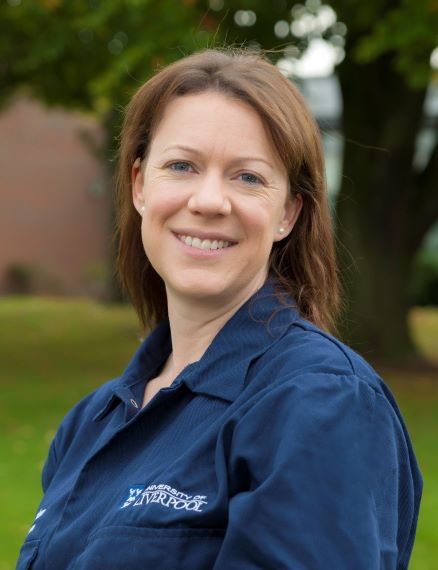 Debbie graduated from the University of Glasgow in 1996 and worked in mixed and equine practice before undertaking an equine surgical residency at the University of Liverpool in 2000. During this time Debbie gained the RCVS Certificate in Equine Surgery (soft tissue) and subsequently gained the ECVS Diploma in Equine Surgery in 2004. She completed a PhD between 2003-2006 investigating the Epidemiology of colic at the University of Liverpool. Debbie was appointed as Senior Lecturer in Equine Soft Tissue Surgery in 2006 and subsequently as Professor of equine surgery in 2013. She divides her time between performing equine clinical work and teaching at the Philip Leverhulme Equine Hospital and performing research within the Department of Epidemiology and Population Health (Institute of Global Health, University of Liverpool). Her clinical interest include all aspects of abdominal surgery, upper respiratory tract and urogenital conditions including laser surgery and laparoscopic surgery and management of traumatic injuries. She is head of Equine Surgery at The University of Liverpool and is leading an International Colic Audit (INCISE project) and randomised controlled trial investigating lidocaine in horses following small intestinal.
Debbie graduated from the University of Glasgow in 1996 and worked in mixed and equine practice before undertaking an equine surgical residency at the University of Liverpool in 2000. During this time Debbie gained the RCVS Certificate in Equine Surgery (soft tissue) and subsequently gained the ECVS Diploma in Equine Surgery in 2004. She completed a PhD between 2003-2006 investigating the Epidemiology of colic at the University of Liverpool. Debbie was appointed as Senior Lecturer in Equine Soft Tissue Surgery in 2006 and subsequently as Professor of equine surgery in 2013. She divides her time between performing equine clinical work and teaching at the Philip Leverhulme Equine Hospital and performing research within the Department of Epidemiology and Population Health (Institute of Global Health, University of Liverpool). Her clinical interest include all aspects of abdominal surgery, upper respiratory tract and urogenital conditions including laser surgery and laparoscopic surgery and management of traumatic injuries. She is head of Equine Surgery at The University of Liverpool and is leading an International Colic Audit (INCISE project) and randomised controlled trial investigating lidocaine in horses following small intestinal.
3:35-3.45pm Closing
 |
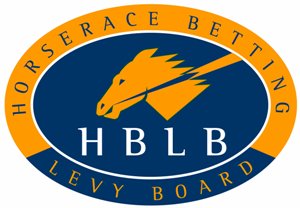 |